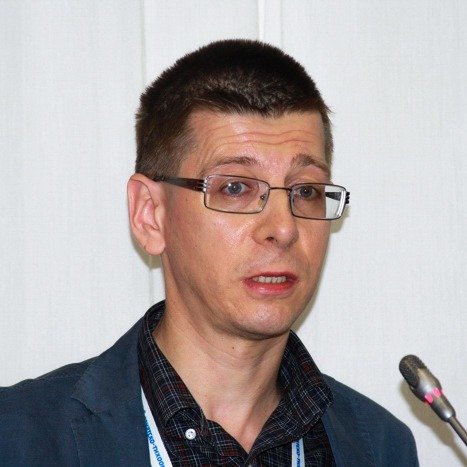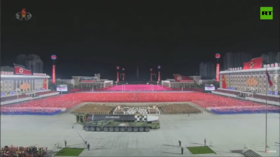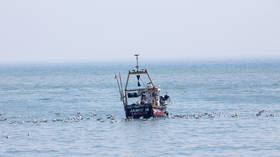Strongman Kim delivers tearful apology over his failure to improve N. Koreans’ lives. But are his tears sincere?
Boys, even big and powerful ones, do cry. This was the takeaway from the grand military parade in North Korea’s capital Pyongyang to celebrate the 75th anniversary of the ruling Workers’ Party of Korea.
The boy in question was Kim Jong-un, the supreme leader of North Korea, who became visibly emotional and apparently shed some tears while delivering his address to the nation from a marble podium on Pyongyang’s main square on October 10.
The tears on the supreme leader’s face appeared as he expressed gratitude to the North Korean people for “overcoming countless ordeals.”
Kim also expressed an unprecedented apology for failing to improve the lives of the DPRK citizens: “Our people have placed trust, as high as sky and as deep as sea, on me, but I have failed to always live up to it satisfactorily. I am really sorry for that. Although I am entrusted with the important responsibility to lead this country upholding the cause of the great Comrades Kim Il Sung and Kim Jong Il thanks to the trust of all the people, my efforts and sincerity have not been sufficient enough to rid our people of the difficulties in their life.”
Were Kim’s tears, broadcast to the North Koreans and to the global audience, sincere? Or was it just a piece of good actorship? There is probably only one person who knows the answer: Kim’s younger sister Kim Yo-jong, who is considered his closest aide and likely the second most powerful figure in the DPRK’s power hierarchy. Kim Yo-jong is also rumored to be responsible for her brother’s public image.
It is not that unusual even for steely national leaders to strategically shed a tear or two in public. In June 2019, Vladimir Putin, a paragon of masculinity, got misty-eyed during a televised direct line with the nation when recalling an episode from one of his trips in Russia: a desperate old woman handed him a note, apparently entreating for help, but Putin’s aides subsequently lost this piece of paper. “I am still ashamed that the note with her plea was lost,” Putin confided to the Russians.
Kim Jong-un may have at his disposal one of the world’s most efficient repressive machines and he doesn’t hesitate to use it. In the most notorious case, he ordered the execution of his own uncle-in-law for alleged corruption and disloyalty.
Still, his preferred mode of ruling the country seems to be through earning his subjects’ loyalty by reaching out to people and promising to make their lives better. Kim Jong-un’s image-making strategy draws a direct connection between the incumbent North Korean leader and his grandfather, the DPRK’s founder Kim Il Sung. The Great Leader Kim Il Sung had an aura of a man of the people and is still revered by most North Koreans.
#KimJongUn has used the pandemic to focus on solidifying loyalty at home. These images of grandfather Kim Il Sung as a man of the people, like this one of him offering a cigarette to a farmer, is designed to convince North Koreans: like grandfather, like grandson. #NorthKoreapic.twitter.com/EOeBGtul4Z
— Jean H. Lee (@newsjean) October 10, 2020
In his PR endeavors, Kim the junior is helped by his unmistakable resemblance to his grandfather, never mind that the granddad apparently did not care to meet his grandson even once.
North Koreans have a genuine affection for #KimIlSung, first leader of #DPRK. Part of strategy of maintaining Kim family rule is drawing direct line between grandfather & grandson, as though #KimJongUn is Kim Il Sung reincarnated. Another screengrab from doc showing live in NK. pic.twitter.com/XoTg180z3S
— Jean H. Lee (@newsjean) October 10, 2020
Kim Jong-un has yet to earn the same level of affection the founder of the Kim dynasty enjoyed, but there is definitely one area where the grandson has already vastly outperformed the grandfather. This is North Korea’s military might. Saturday’s celebration in Pyongyang saw by far the biggest range of new equipment to ever be introduced at a military parade in North Korean history.
INFOGRAPHIC: How does North Korea's latest military parade compare, by the numbers?The data is startling: Saturday’s parade saw by far the biggest range of new equipment to ever be introduced at a military parade in North Korean history.https://t.co/CuwPGjg2Popic.twitter.com/lFgwyw1quR
— NK NEWS (@nknewsorg) October 11, 2020
Most notably, the spectacular night-time parade featured a monstrous inter-continental ballistic missile, the largest road-mobile missile ever built by any nuclear state. This carried a message to the domestic audience: “The nation is experiencing a lot of hardship and the economy is not good. But all of that is redeemed by our new powerful weapons that make us equal to the world’s great powers.”
There was also an implicit message to the United States: make a deal on our terms unless you want to live in fear of Los Angeles or New York being incinerated by a thermonuclear strike. But here is the catch. In 2016 and 2017, Kim Jong-un already tried to force Washington into a deal by rolling out, and test-firing, an array of long-range missiles capable of hitting the US. That got him three meetings with Donald Trump, but no economic benefits or relief from punishing sanctions that cripple North Korea’s economy and make it ever more dependent on China. It’s far from certain Washington will sue for terms this time after seeing Kim’s new missile.
Also on rt.com Pyongyang shows off BRAND NEW intercontinental ballistic missile during military parade, according to expertsKim Jong-un expressed confidence that North Koreans “would follow and defend the Party for another 75 years, nay, 750 years and even 7,500 years.”
Maybe he will be proven right. It’s good to live under a compassionate and humble supreme leader who recognizes his people’s sacrifices. And it feels great when your nation wields beautiful and fearsome weapons that only the great powers possess. But at some point the people might get tired of “heroic struggle” and decide they want something else. That would be a truly tearful moment for any supreme leader.
Think your friends would be interested? Share this story!
The statements, views and opinions expressed in this column are solely those of the author and do not necessarily represent those of RT.
















